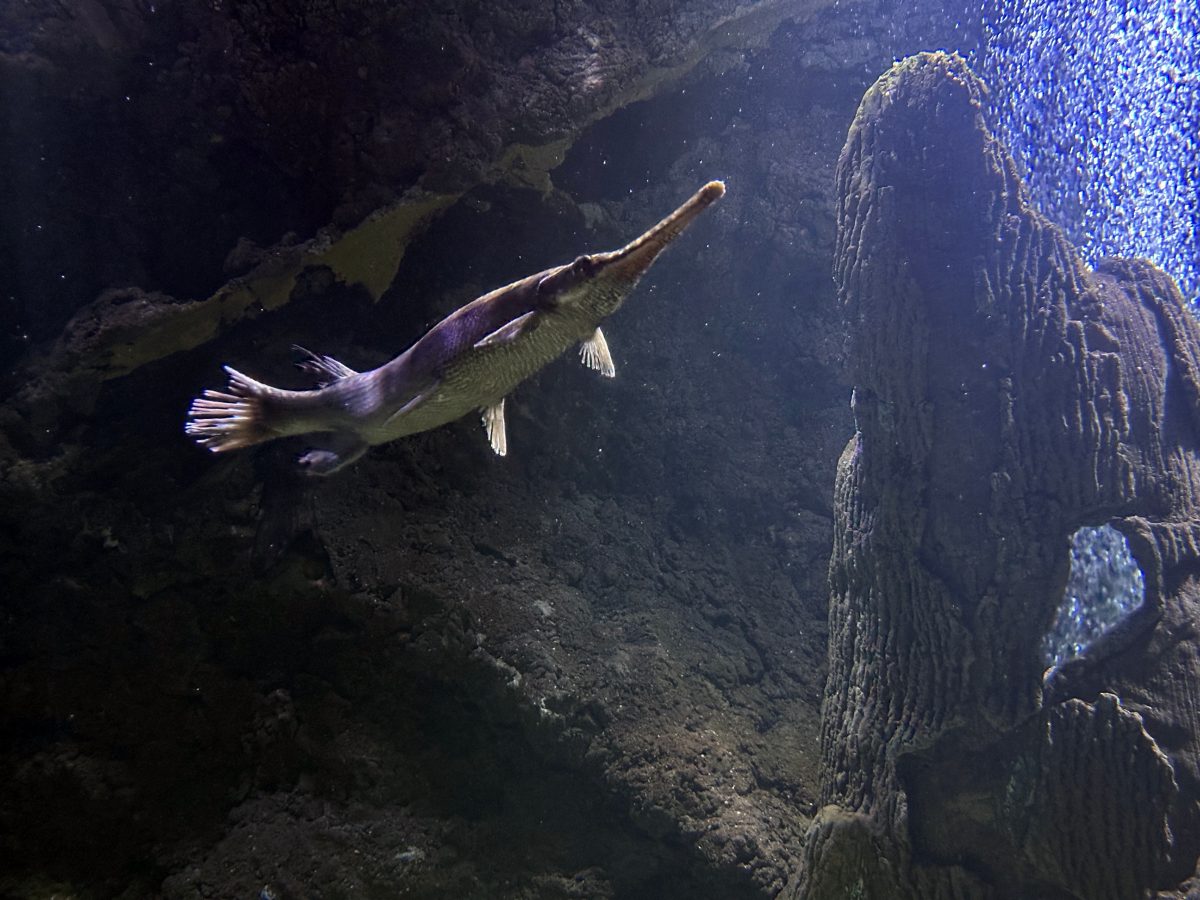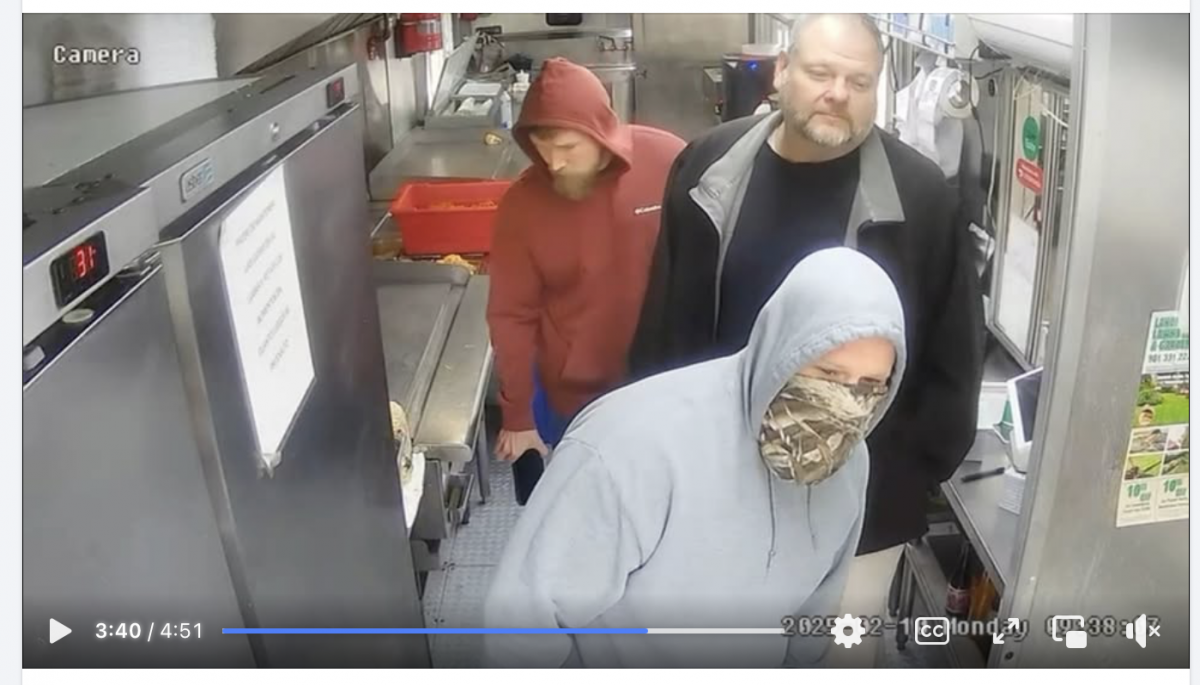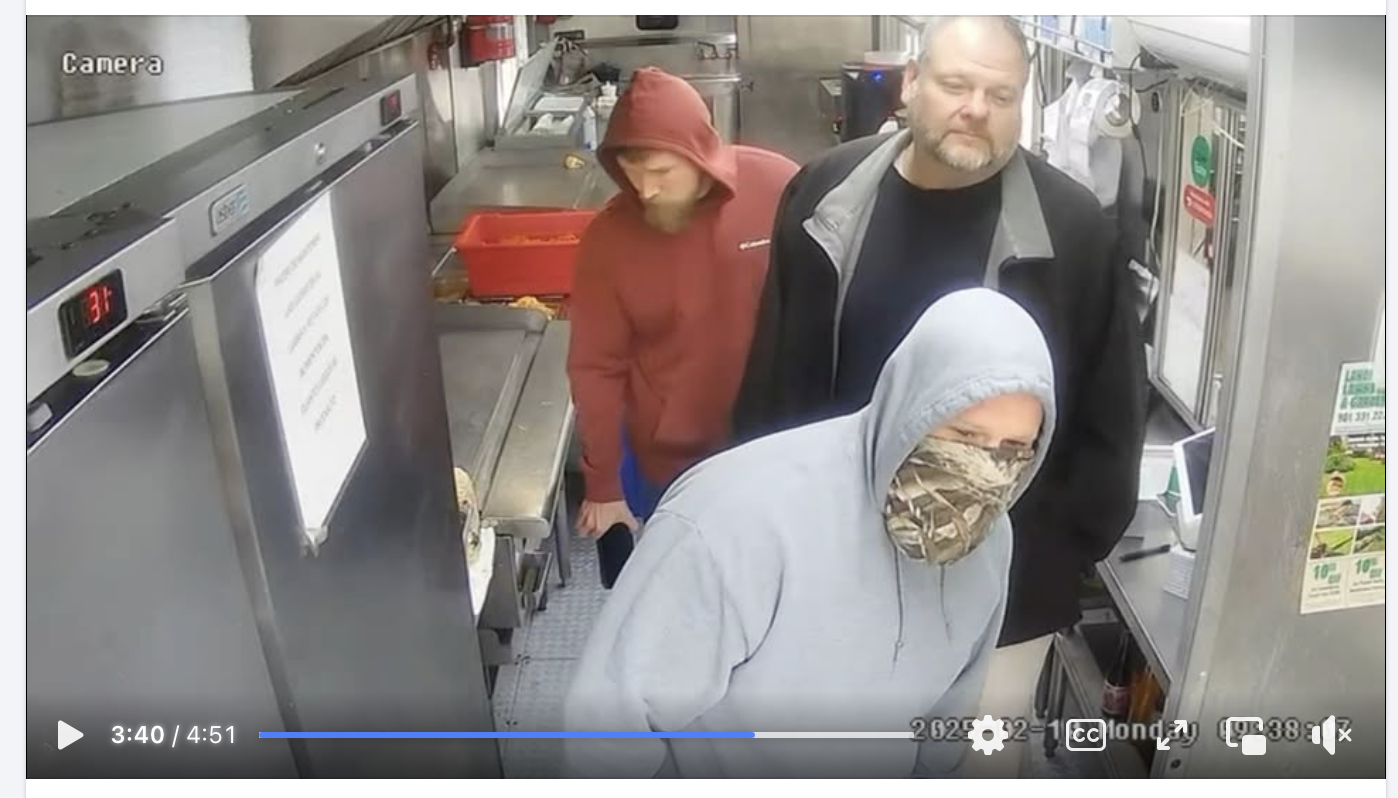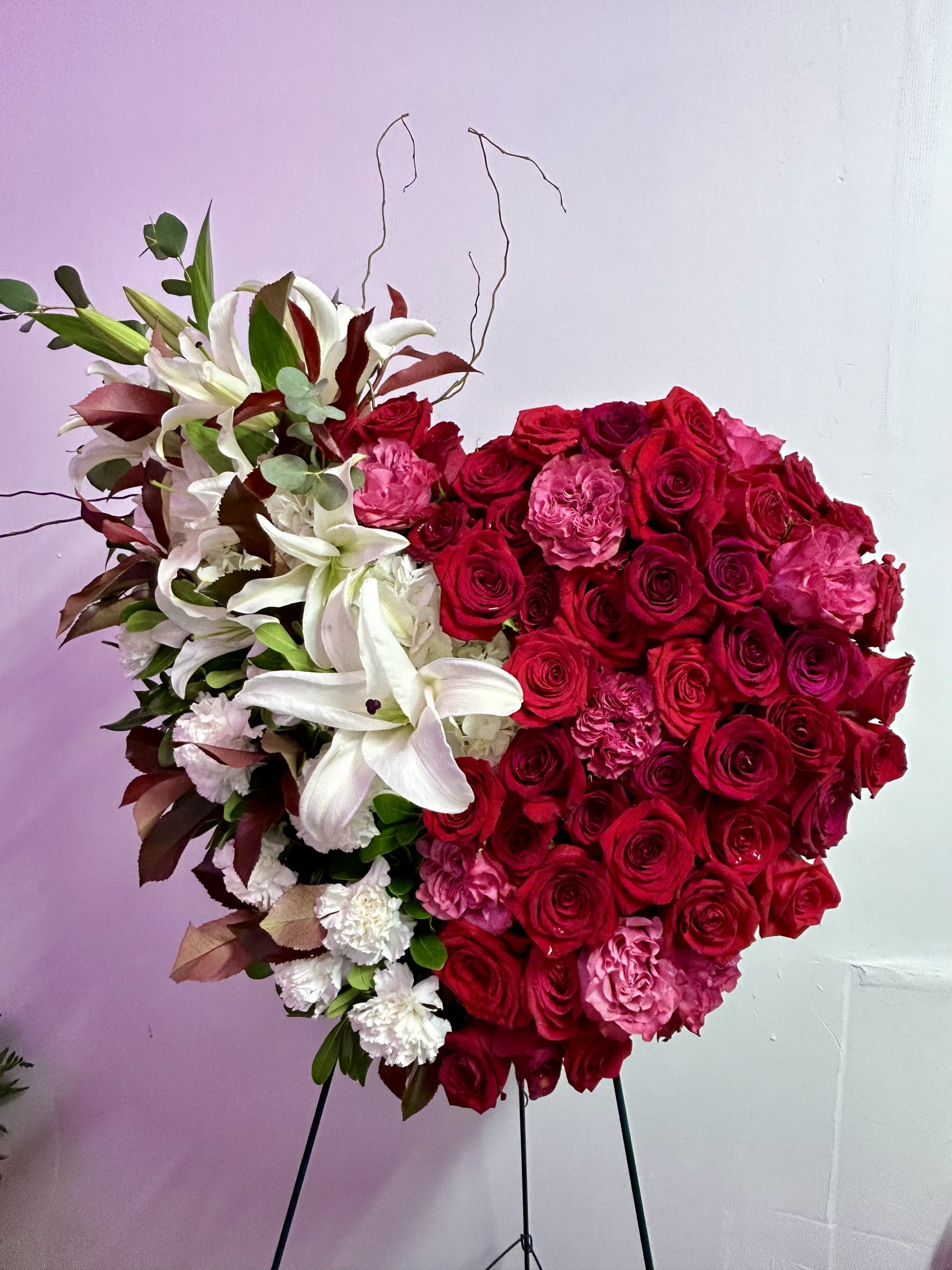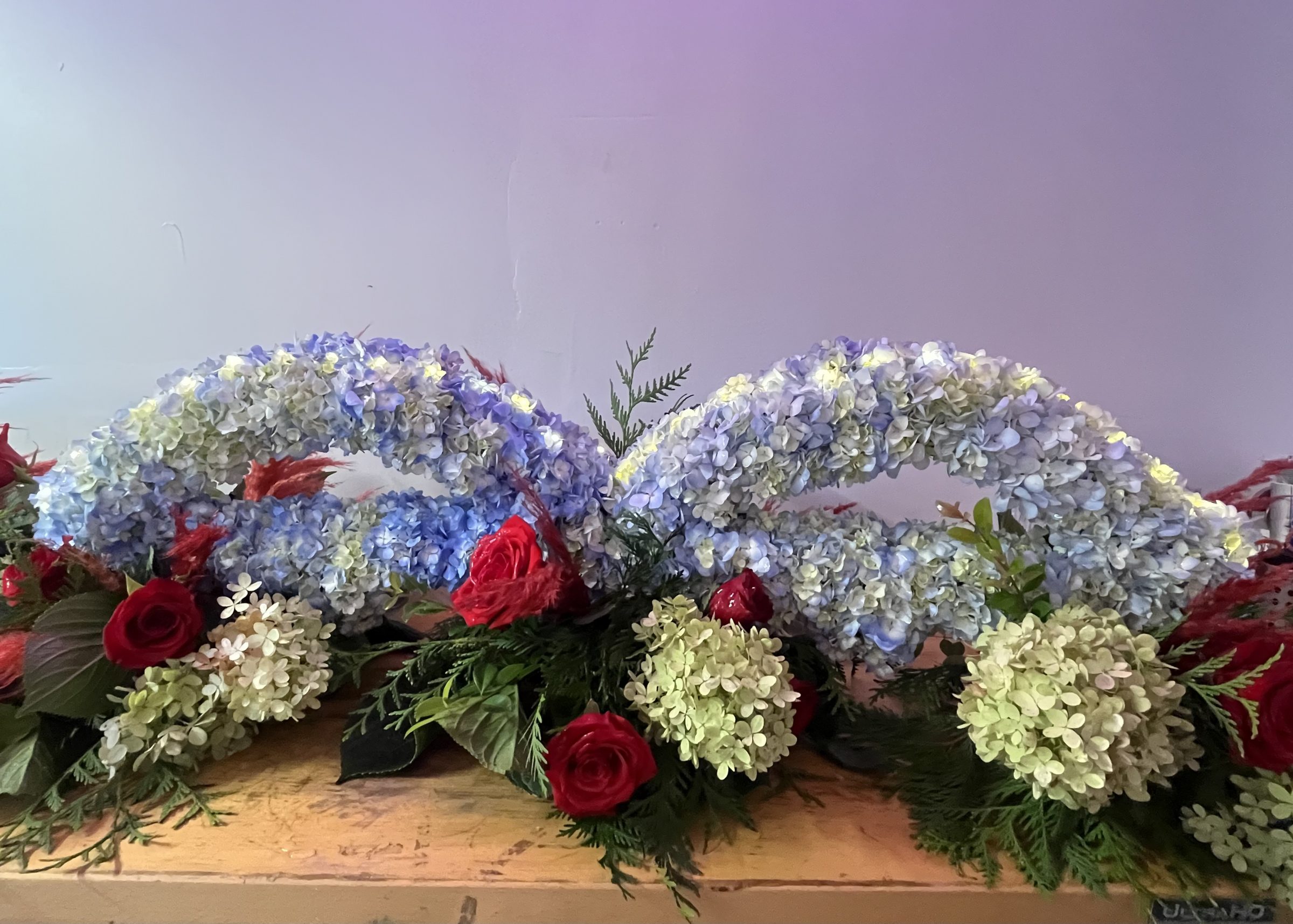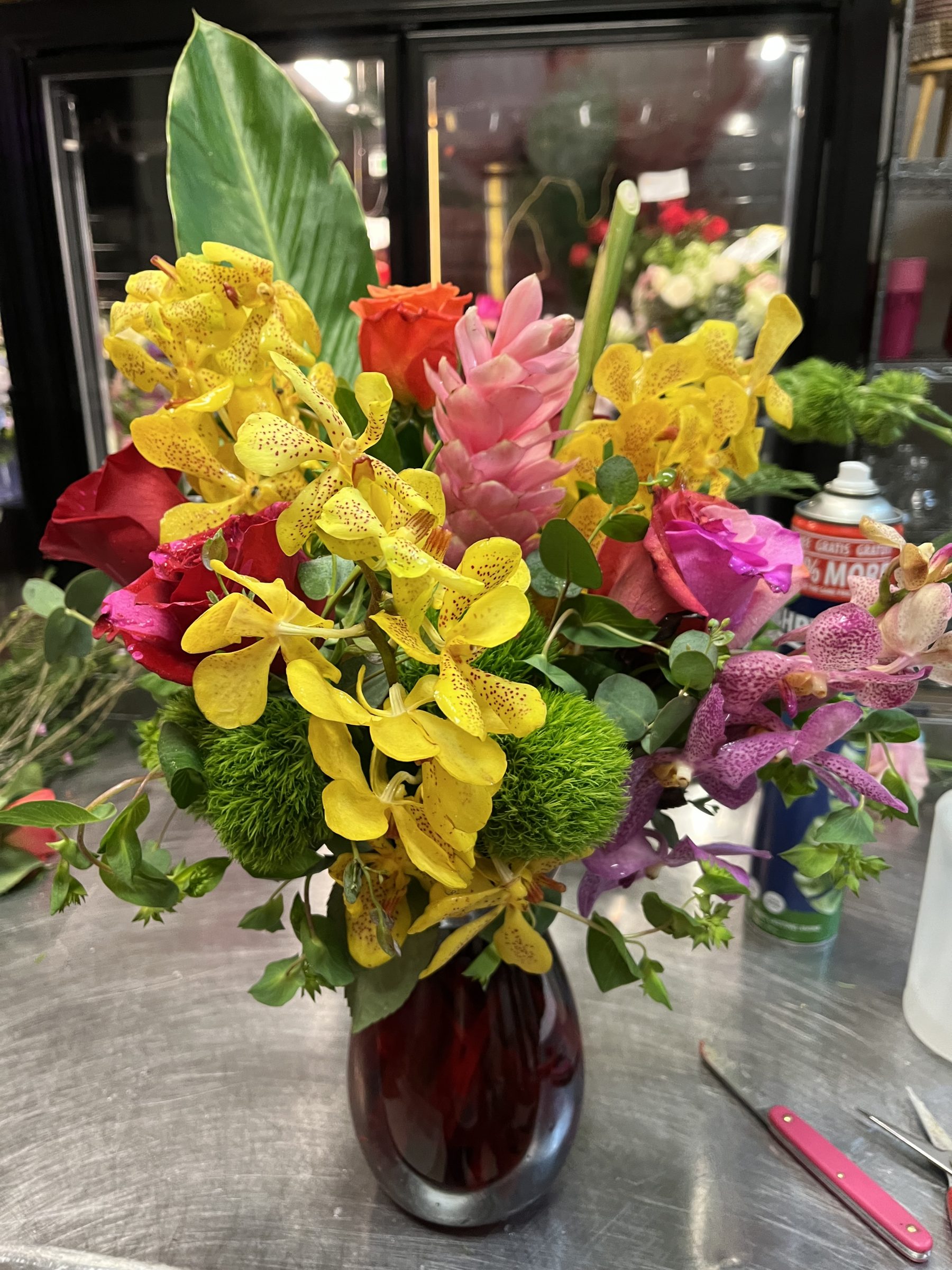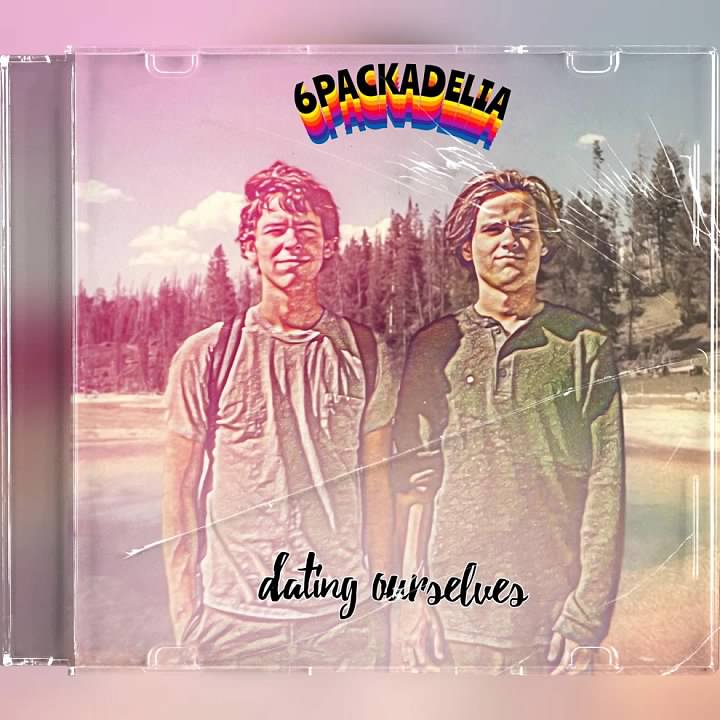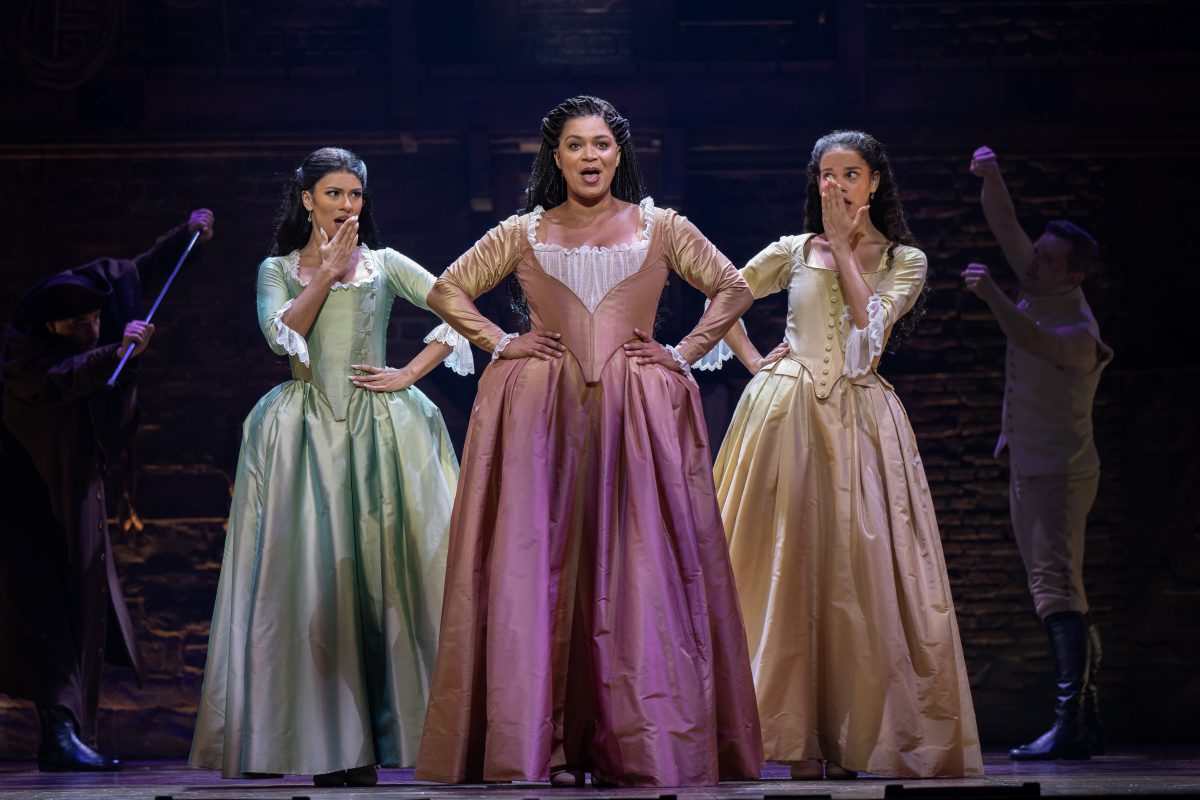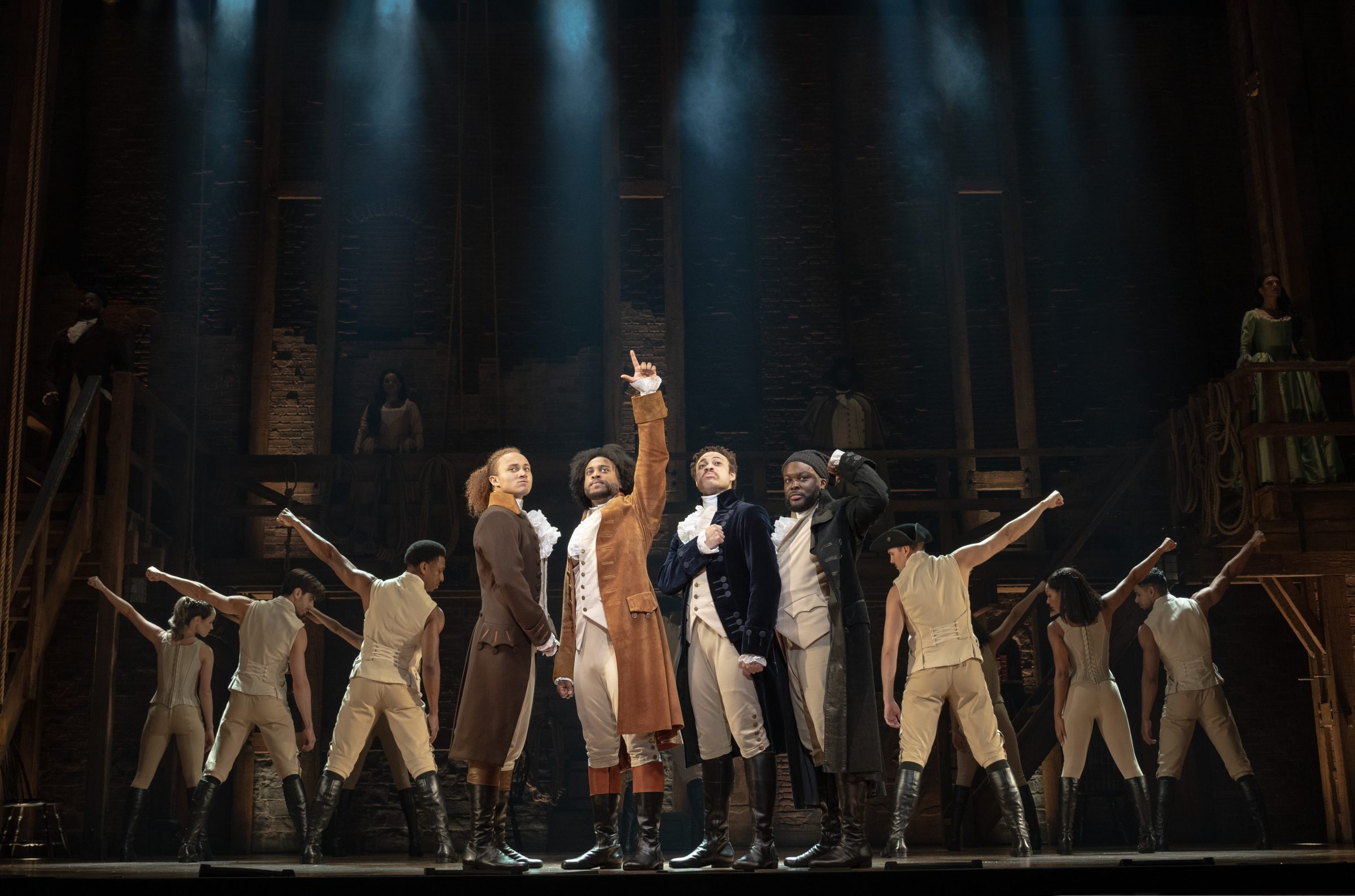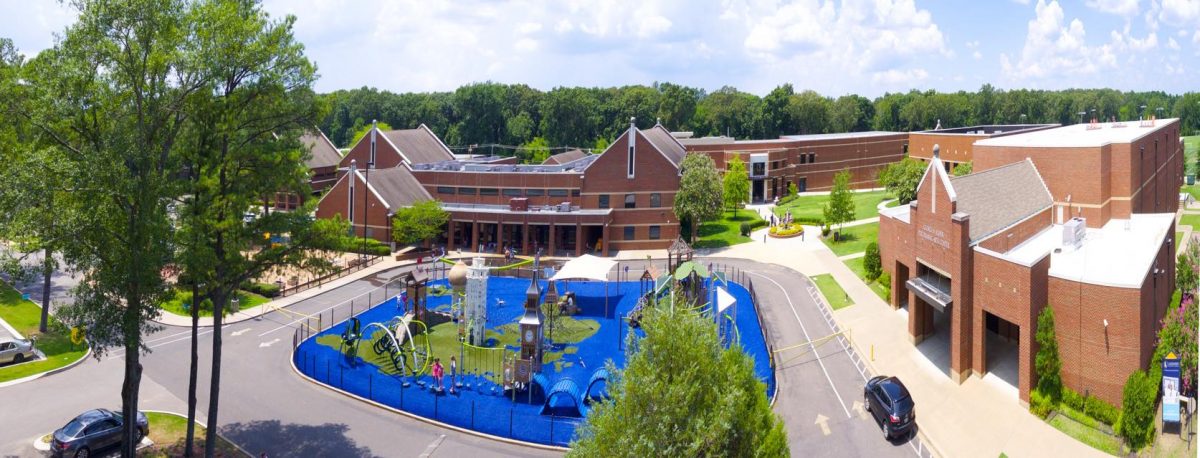
A first-of-its-kind project seeking to restore river ecosystems along 39 miles of the Lower Mississippi River has federal approval to move forward — if it can secure a slice of the federal bankroll.
The Hatchie-Loosahatchie Mississippi River Ecosystem Restoration project would restore the habitats of endangered species, support natural culling of invasive carp and restore floodplain ecosystems severed from the Mississippi River by decades of flood control measures.
The project received legislative approval in January in the Water Resources Development Act, a law passed by Congress every two years that gives the U.S. Army Corps of Engineers (USACE) authority to conduct studies and projects for water resource conservation and development.
The roughly $63.7 million undertaking would be the largest ecosystem restoration project in the history of the USACE Memphis District.
Restoration efforts would touch more than 6,000 acres in Tennessee and Arkansas, stretching from the Hatchie River to the Wolf River near downtown Memphis. The project will cover the portion of the Mississippi River bordering Crittenden and Mississippi counties in Arkansas and Lauderdale, Tipton and Shelby counties in Tennessee.
The main goal is habitat restoration to support the hundreds of species along the river by reconnecting secondary river channels, reforesting bottomland hardwood forests, seeding wetland plants and fixing bridges, among other things. It will also include trail improvements in Meeman Shelby Forest and Wolf River Harbor. The project isn’t expected to negatively impact navigation or flood mitigation on the Mississippi.
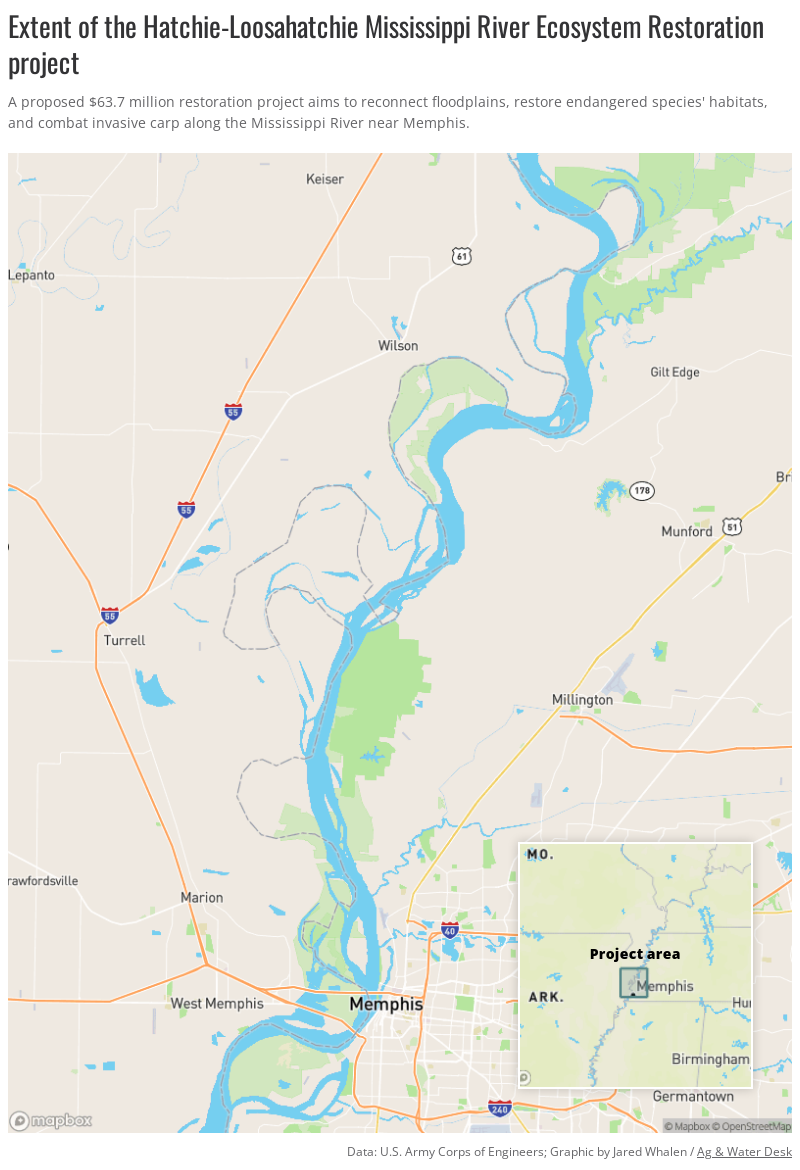
Initial efforts to revitalize the Lower Mississippi River began about 25 years ago when a resource assessment identified eight sections of the river for habitat restoration. The Hatchie-Loosahatchie project is the first to complete its feasibility study and cross the legislative approval hurdle.
USACE Memphis District Program Manager Jason Allmon served as project manager for the Hatchie-Loosahatchie Ecosystem Restoration Study for three years, alongside supervisory biologist and environmental lead Mike Thron.
“Flood risk management and navigation have traditionally been the main mission areas, particularly in the Memphis District,” Thron said. “This is kind of the first time we’re taking a large-scale approach of ecosystem restoration.”
Allmon said this project is serving as a pilot for restoration that could extend to the rest of the Lower Mississippi all the way to New Orleans.
“This is a significant opportunity for this region and for the country, too, with the Mississippi River being the largest river in America,” Allmon said. “Doing this 39-mile stretch of ecosystem restoration … could make a big difference, and it could also lead the way for other projects in the future, which have already actually been authorized for us to study.”
Restoring Endangered Species’ Natural Habitats
Extensive flood protection measures have altered the river and threatened habitats since the early 20th century. The federal government and Corps began extensively fixing the river in place through a system of levees after the Great Mississippi Flood of 1927 inundated 27,000 square miles. The levees, along with navigation along the Mississippi, have also disconnected the river from its floodplain.
Michael Butler, CEO of the Tennessee Wildlife Federation, said decades of alterations to the Mississippi River and nearly all of its tributaries in West Tennessee had major unintended consequences. The Hatchie River is the last remaining tributary that has not had its main stem channelized, which hampers a river’s natural meandering flow through a floodplain.
“When you look at that floodplain, it is a dynamic living system,” Butler said. “I think what the Corps is trying to do, which we support, is to restore some of those processes that are going to help recover some of those habitats that have been really, really damaged by early approaches.”
Flood risk management and navigation projects have removed about 152 miles of bends from the river, according to the Corps study. About 80 percent of forest habitat along the river has been converted to agricultural use.
Meander scarps, the remnants of those meandering river channels, were separated from the Mississippi’s main channel in the 1930s and 1940s. The few remaining meander scarps connect floodplains and provide ideal habitats for many species, including the federally endangered fat pocketbook mussel and its fish host, the freshwater drum.
“Fat pocketbook mussels are a good representative species for all the freshwater mussels that are out there in the river, and they do help with water quality,” Thron said. As bottom feeders, they filter water and naturally clean it.
The scarps also provide refuge from dredging and barge traffic, making them a fitting nursery for young pallid sturgeon, another federally endangered species. Only 14 meander scarps remain along the Mississippi, and they no longer occur naturally, due to engineering. The Hatchie-Loosahatchie project seeks to preserve the three that lie in the project area.
Eric Brinkman is the assistant chief of aquatic conservation at the Arkansas Game & Fish Commission, which is part of the Lower Mississippi River Conservation Committee, the project’s non-federal sponsor.
“Hundreds of [species of] animals are dependent on that floodplain,” Brinkman said. He added that the floodplains have additional benefits, like sequestering nitrates and phosphorus that otherwise flow downriver and create the “dead zone” in the Gulf of Mexico — which President Donald Trump directed the government refer to as the Gulf of America in a January executive order.
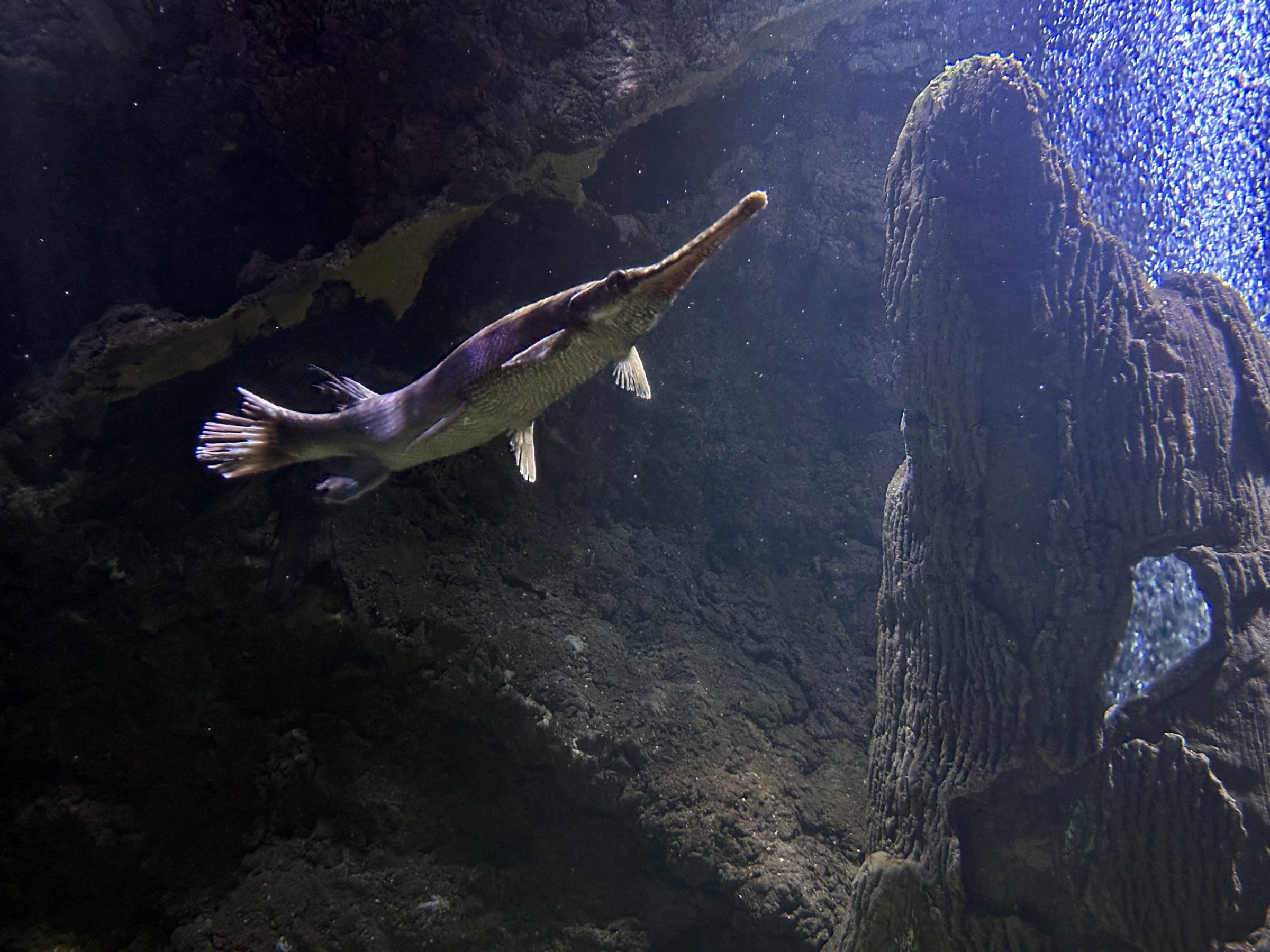
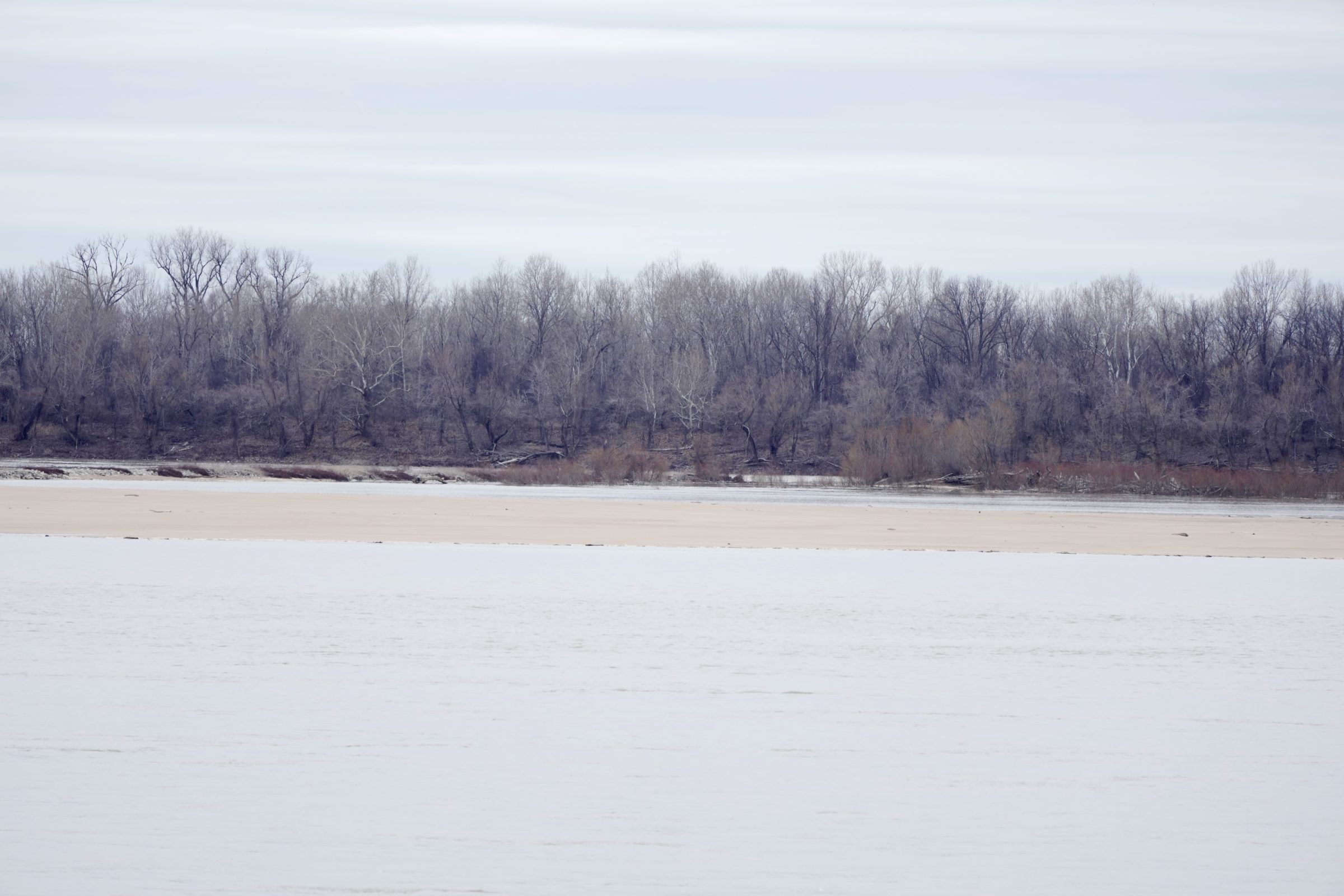

Combatting carp by supporting native predators
Native species are facing another challenge to their survival: invasive carp species that reproduce and grow rapidly, feeding on plankton and outcompeting native species for vital resources.
“The carp grow so fast that they don’t have many natural predators,” Thron said.
Enter the alligator gar.
Alligator gar are native to the Lower Mississippi River. They can grow up to 8 feet long and weigh more than 300 pounds, making them “one of the only native predators that grow large enough to eat these invasive carp,” Thron said.
But both Tennessee and Arkansas identify the alligator gar as a species of conservation concern, which means they’re at risk of going extinct. Changing habitats and overfishing have caused populations to decrease.
They rely on floodplains and wetlands to spawn, and Thron said restoring floodplains will provide more habitat.
Many of the measures in the Hatchie-Loosahatchie project are aimed at promoting the alligator gar’s spawning habitat. The study identifies the fish as a key component of the Mississippi River basin’s strategy to control invasive carp.
Funding, land acquisition remain hurdles
While the project has moved on track so far, Allmon acknowledged that it is a long-term endeavor.
Engineering and design work come next, but funding remains the biggest question. The cost of the restoration components of the project would be shared by the federal government (65 percent) and nonfederal sources (35 percent). The recreation projects would be split 50/50.
Included in the recommended recreation projects is an increase in boat ramps. There are currently six boat landings along the reach. Six are in Tennessee; one is in Arkansas.
Recreation in the lower Mississippi River generates $1.3 billion and employs 55,000.
USACE’s civil works budget falls within a multi-step federal budgeting process that is driven in part by political priorities from the presidential administration. Projects can also be funded with supplemental appropriations. USACE has received supplemental funds nearly every year since 2017 — with the exception of 2021 — but those are typically given for repairs following significant storm damage, according to a 2022 overview of USACE’s budget process.
Brinkman, with the Arkansas Game & Fish Commission, said he wouldn’t be surprised if it took decades for the funding to be approved.
“Something of this scale has not been accomplished before … it is a slow process, for sure,” he said.
Allmon said his team never knows what will get funded or when. “If it doesn’t get funded this cycle, it’s not to say it won’t get funded in the next cycle,” he said.
Working with local landowners is another potential hurdle. Most land within the batture — the area of the alluvial plain extending from the river to the levee — is privately owned.
The project as planned requires the purchase of more than 2,881 acres of private land, and easements for roads and construction at an estimated cost of $17.6 million, according to a project recommendation letter from USACE Chief of Engineers Scott Spellmon.
Of the total 3,044 acres of private and public land encompassed by the project, about half lies in Tennessee, and half lies in Arkansas.
Spellman’s letter lists real estate acquisition as one of the project’s “major uncertainty drivers.” But it also notes that the majority of the project benefits are expected to be successfully completed on public land and land purchased from willing sellers.
“There’s been some apprehension around that,” Brinkman said. “There will definitely be some negotiations. A lot of discussions are gonna have to happen before anything is done on the ground.”
This story is a product of the Mississippi River Basin Ag & Water Desk, an independent reporting network based at the University of Missouri in partnership with Report for America, with major funding from the Walton Family Foundation.
